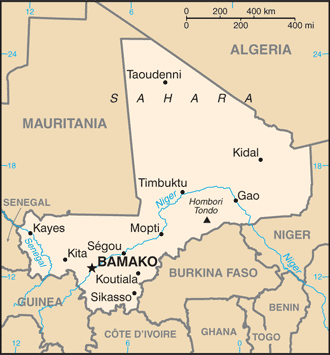PM Narendra Modi addresses joint session of Parliament of Trinidad & Tobago
- TPP

- Jul 5, 2025
- 3 min read

Prime Minister Narendra Modi recently concluded a significant and historic visit to Trinidad and Tobago, marked by deep cultural connections, diplomatic milestones, and a reaffirmation of shared democratic values. Speaking from the iconic Red House—the historic seat of Trinidad and Tobago’s Parliament—PM Modi became the first Indian Prime Minister to address the Joint Session of the Parliament of the Caribbean nation, a moment laden with symbolism and emotion.
In his address, PM Modi emphasized India's commitment to the Global South—a term used to describe developing and emerging countries, particularly in Asia, Africa, Latin America, and the Caribbean—underscoring that "the voice of the developing world remains on the margins". He reiterated India’s determination to work with global partners to give the Global South its rightful seat at the high table, especially as old global institutions, such as the United Nations, struggle to deliver peace and progress in a rapidly changing world order.
Highlighting the progress of emerging nations, he remarked, "The Global South is rising. They wish to see a new and fairer world order." PM Modi reiterated India's proactive efforts during its G20 presidency in 2023, where it brought the concerns of the developing world to the forefront of global decision-making.
Calling for reform in global governance, he emphasized the need to restructure international institutions to better reflect contemporary global realities and challenges. At the heart of his message was a strong plea to strengthen the global fight against terrorism, which he called the "enemy of humanity". Referring to Trinidad and Tobago’s own experience, he noted that the Red House itself had witnessed the wounds of terror and the loss of innocent blood, urging the global community to deny terrorism any shelter or space. He thanked the people and government of Trinidad and Tobago for their unwavering support of India’s fight against terrorism.
Democracy, PM Modi stated, is more than a political system for India—it is a "way of life". He hailed democracy as a shared value between India and Trinidad and Tobago, praising the resilience of the Red House and recognizing the contribution of women leaders of Indian origin in the Caribbean nation's political landscape.
One of the most emotional highlights of his address came when PM Modi spoke about the Speaker’s Chair in Trinidad and Tobago’s Parliament—a gift from India in 1968. The ornate chair bears the inscription, “From the People of India to the People of Trinidad and Tobago”. He reflected on its significance, stating, "The chair is not just a piece of furniture, but a powerful symbol of the friendship between our two nations."
The second day of the visit saw the signing of six Memorandums of Understanding (MoUs) between the two nations. These MoUs spanned a range of areas including:
Diplomatic training
Sports collaboration
Establishment of an ICCR centre (Indian Council for Cultural Relations—an autonomous body of the Government of India dedicated to strengthening India's cultural relations with other countries)
Cultural exchanges
Accessible pharmaceuticals
Educational infrastructure support, with India announcing the provision of 2000 laptops to students in Trinidad and Tobago.
In a major diplomatic gesture, Prime Minister Modi was conferred with the highest national award of Trinidad and Tobago—the Order of the Republic of Trinidad and Tobago, in recognition of his contributions to strengthening bilateral ties and global leadership.
This visit also coincided with announcements regarding the extension of OCI (Overseas Citizenship of India) benefits—an initiative aimed at deepening engagement with the Indian diaspora in Trinidad and Tobago, one of the largest Indian-origin communities in the Caribbean.
Prime Minister Modi concluded his visit by affirming that Trinidad and Tobago will be a priority nation for India, further strengthening South-South cooperation and people-to-people connections. The events of the trip not only reinforced India's strategic commitment to the Caribbean but also marked a new chapter in the collective aspirations of the Global South, seeking dignity, representation, and fairness on the global stage.
Explore more on UPSC Content
Click for Daily Quotes:
Stay updated with the latest news by joining our Telegram channel – The PRESS Pad , and follow us on Instagram and X.



header.all-comments